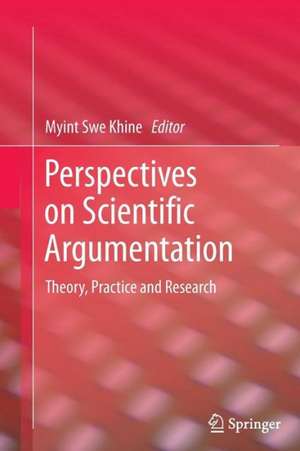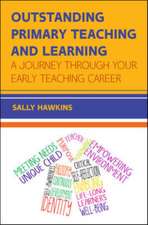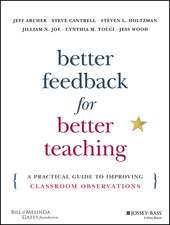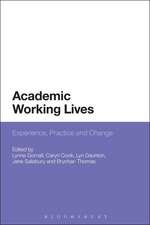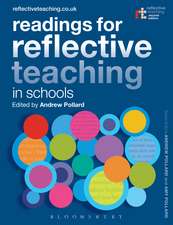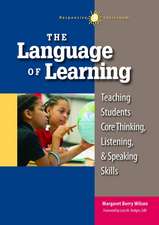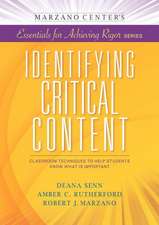Perspectives on Scientific Argumentation: Theory, Practice and Research
Editat de Myint Swe Khineen Limba Engleză Paperback – 29 noi 2013
Perspectives on Scientific Argumentation brings together prominent scholars in the field to share the sum of their knowledge about the place of scientific argumentation in teaching and learning. Chapters explore scientific argumentation as a means of addressing and solving problems in conceptual change, reasoning, knowledge-building and the promotion of scientific literacy. Others interrogate topics such as the importance of language, discursive practice, social interactions and culture in the classroom. The material in this book, which features intervention studies, discourse analyses, classroom-based experiments, anthropological observations, and design-based research, will inform theoretical frameworks and changing pedagogical practices as well as encourage new avenues ofresearch.
| Toate formatele și edițiile | Preț | Express |
|---|---|---|
| Paperback (1) | 640.71 lei 43-57 zile | |
| SPRINGER NETHERLANDS – 29 noi 2013 | 640.71 lei 43-57 zile | |
| Hardback (1) | 647.08 lei 43-57 zile | |
| SPRINGER NETHERLANDS – oct 2011 | 647.08 lei 43-57 zile |
Preț: 640.71 lei
Preț vechi: 753.77 lei
-15% Nou
Puncte Express: 961
Preț estimativ în valută:
122.60€ • 128.33$ • 102.04£
122.60€ • 128.33$ • 102.04£
Carte tipărită la comandă
Livrare economică 31 martie-14 aprilie
Preluare comenzi: 021 569.72.76
Specificații
ISBN-13: 9789400793217
ISBN-10: 9400793219
Pagini: 304
Ilustrații: XII, 292 p.
Dimensiuni: 155 x 235 x 16 mm
Greutate: 0.43 kg
Ediția:2012
Editura: SPRINGER NETHERLANDS
Colecția Springer
Locul publicării:Dordrecht, Netherlands
ISBN-10: 9400793219
Pagini: 304
Ilustrații: XII, 292 p.
Dimensiuni: 155 x 235 x 16 mm
Greutate: 0.43 kg
Ediția:2012
Editura: SPRINGER NETHERLANDS
Colecția Springer
Locul publicării:Dordrecht, Netherlands
Public țintă
ResearchCuprins
Foreword, Deanna Kuhn.- PART I: Theoretical Premises of the Study of Argumentation.- Chapter 1 Introduction, Jonathan Osborne, Anna MacPherson, Alexis Patterson, Evan Szu.- Chapter 2 The Two Faces of Scientific Argumentation: Applications to Global Climate Change, E. Michael Nussbaum, Gale M. Sinatra, Marissa C. Owens.- Chapter 3 The Importance of Embedding Argument within Science Classrooms, Andy Cavagnetto, Brian Hand.- Chapter 4 Scientific Reasoning and Argumentation from a Bayesian Perspective, Evan Szu, Jonathan Osborne.- Chapter 5 Students’ Framings and Their Participation in Scientific Argumentation, Leema Kuhn Berland, David Hammer.- PART II: Practice Perspectives in Argumentation, Chapter 6 The Design and Enactment of Argumentation Activities, Shirley Simon, Katherine Richardson, Ruth Amos.- Chapter 7 Argumentation and Reasoning in Life and in School: Implications for the Design of School Science Learning Environments, Leah Bricker, Philip Bell.- Chapter 8 Argumentation and Evaluation Intervention in Science Classes: Teaching and Learning with Toulmin, Janis A. Bulgren, James D. Ellis.- PART III: Researching Argumentation in Science Education.- Chapter 9 Research on Critique and Argumentation from the Technology Enhanced Learning in Science Center, Douglas Clark, Jennifer Chiu, Hsin-Yi Chang, Victor Sampson, Beat Schwendimann, Erika Tate, Helen Zhang.- Chapter 10 Evaluating Arguments about Climate Change, Adam Corner.- Chapter 11 The Effects of University Students’ Argumentation on Socio-scientific Issues via On-line Discussion in Their Informal Reasoning Regarding this Issue, Ying-Tien Wu, JhongLi, Taiwan, Chin-Chung Tsai.- Chapter 12 The Development and Validation of the Assessment of Scientific Argumentation in the Classroom (ASAC) Observation Protocol: A Tool for Evaluating How Students Participate in Scientific Argumentation, Victor Sampson, Patrick J. Enderle, Joi P. Walker.- Chapter 13 Beyond Argumentation: The Rich Complexity of Discoursein Science Classroom, Scott McDonald, Gregory Kelly.- Chapter 14 Development of Augmentative Knowledge in Science Education, Myint Swe Khine.
Recenzii
“This book critically examines argumentation in science classrooms both in terms of underlying theories and practical application. It describes the most recent research into a topic that has already become one of the most important in science education this decade. I commend it to researchers, teachers and policy-makers alike.”
Justin Dillon
Professor of Science and Environmental Education, King’s College London
President, European Science Education Research Association (ESERA)
Justin Dillon
Professor of Science and Environmental Education, King’s College London
President, European Science Education Research Association (ESERA)
Textul de pe ultima copertă
Argumentation—arriving at conclusions on a topic through a process of logical reasoning that includes debate and persuasion— has in recent years emerged as a central topic of discussion among science educators and researchers. There is now a firm and general belief that fostering argumentation in learning activities can develop students’ critical thinking and reasoning skills, and that dialogic and collaborative inquiries are key precursors to an engagement in scientific argumentation. It is also reckoned that argumentation helps students assimilate knowledge and generate complex meaning. The consensus among educators is that involving students in scientific argumentation must play a critical role in the education process itself. Recent analysis of research trends in science education indicates that argumentation is now the most prevalent research topic in the literature. This book attempts to consolidate contemporary thinking and research on the role of scientific argumentation in education.
Perspectives on Scientific Argumentation brings together prominent scholars in the field to share the sum of their knowledge about the place of scientific argumentation in teaching and learning. Chapters explore scientific argumentation as a means of addressing and solving problems in conceptual change, reasoning, knowledge-building and the promotion of scientific literacy. Others interrogate topics such as the importance of language, discursive practice, social interactions and culture in the classroom. The material in this book, which features intervention studies, discourse analyses, classroom-based experiments, anthropological observations, and design-based research, will inform theoretical frameworks and changing pedagogical practices as well as encourage new avenues of research.
“This book critically examines argumentation in science classrooms both in terms of underlying theories and practical application.It describes the most recent research into a topic that has already become one of the most important in science education this decade. I commend it to researchers, teachers and policy-makers alike.”
Justin Dillon
Professor of Science and Environmental Education, King’s College London
President, European Science Education Research Association (ESERA)
Justin Dillon
Professor of Science and Environmental Education, King’s College London
President, European Science Education Research Association (ESERA)
Perspectives on Scientific Argumentation brings together prominent scholars in the field to share the sum of their knowledge about the place of scientific argumentation in teaching and learning. Chapters explore scientific argumentation as a means of addressing and solving problems in conceptual change, reasoning, knowledge-building and the promotion of scientific literacy. Others interrogate topics such as the importance of language, discursive practice, social interactions and culture in the classroom. The material in this book, which features intervention studies, discourse analyses, classroom-based experiments, anthropological observations, and design-based research, will inform theoretical frameworks and changing pedagogical practices as well as encourage new avenues of research.
“This book critically examines argumentation in science classrooms both in terms of underlying theories and practical application.It describes the most recent research into a topic that has already become one of the most important in science education this decade. I commend it to researchers, teachers and policy-makers alike.”
Justin Dillon
Professor of Science and Environmental Education, King’s College London
President, European Science Education Research Association (ESERA)
Justin Dillon
Professor of Science and Environmental Education, King’s College London
President, European Science Education Research Association (ESERA)
Caracteristici
Critical and specialized source describing perspectives on scientific argumentation and implications for science education Covers theory, best practices and research in scientific argumentation in classrooms, online as well as in non-formal educational settings Helps readers develop their understanding on scientific argumentation, its rationales, applications and recent research attempts
